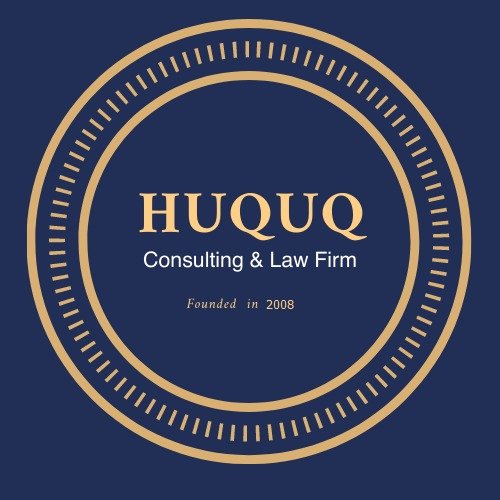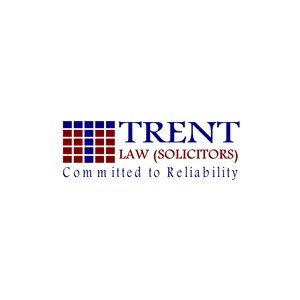Best Nonprofit & Charitable Organizations Lawyers in Sheffield
Share your needs with us, get contacted by law firms.
Free. Takes 2 min.
List of the best lawyers in Sheffield, United Kingdom
About Nonprofit & Charitable Organizations Law in Sheffield, United Kingdom
Nonprofit and charitable organizations in Sheffield play a crucial role in the community by addressing social issues and providing services without the intent of profit. These organizations, which range from small local charities to larger national entities, must navigate a unique set of legal requirements tailored to their non-commercial status. The legal landscape for these organizations in Sheffield, as part of the larger framework of the United Kingdom, involves a combination of national regulations and local considerations, ensuring compliance with charitable purposes while serving community needs. Understanding these legalities is essential for anyone involved in setting up or managing a nonprofit organization in Sheffield.
Why You May Need a Lawyer
Several situations may arise where legal expertise becomes vital for nonprofit and charitable organizations:
- Establishing a new nonprofit organization or registering as a charity requires navigating complex legal requirements.
- Ensuring compliance with the Charity Commission's regulations and reporting obligations is crucial for maintaining charitable status.
- Handling employment law issues, such as drafting contracts and managing disputes with staff or volunteers.
- Addressing governance issues, including conflicts of interest within the board or management team.
- Adapting to changes in data protection laws, which affect how nonprofits manage personal data.
- Dealing with property law if your organization leases or owns property for its activities.
- Managing tax obligations, exemptions, and reliefs that apply to nonprofit entities.
Local Laws Overview
The legal environment in Sheffield for nonprofit and charitable organizations is shaped by a combination of national legislation and local practices. Key aspects include:
- Charity Registration: Organizations must register with the Charity Commission if their activities and income meet specific thresholds and purposes defined by law.
- Governance: A strong governance structure is required, with clear documentation such as constitutions or articles of association.
- Funding and Finance Management: Compliance with regulations around fundraising, accounting, and financial reporting is essential to maintain transparency and accountability.
- Taxation: While charities have access to certain tax exemptions and reliefs, ensuring compliance with HM Revenue and Customs (HMRC) regulations is vital.
- Employment Law: This encompasses fair labor practices and proper contract management for employees and volunteers.
- Data Protection: Organizations must adhere to the General Data Protection Regulation (GDPR) and UK Data Protection Act 2018 in handling personal information.
Frequently Asked Questions
Do I need to register my nonprofit organization as a charity?
If your organization’s purposes align with those recognized as charitable and your income exceeds £5,000, you must register with the Charity Commission for England and Wales.
What responsibilities do charity trustees have?
Trustees are legally responsible for the governance of a charity, ensuring that the charity is run properly, in compliance with the law, and to act in its best interests.
How can my charity manage its financial reporting?
Charities are required to prepare a Trustees’ Annual Report and financial statements. The level of detail depends on the size of the charity, and smaller charities might only need to file simpler reports.
What are the tax benefits available to charities?
Charities can be eligible for a range of tax reliefs, including VAT reliefs, Gift Aid on donations, and exemptions from some direct taxes.
Can a nonprofit organization make a profit?
While nonprofit organizations can generate surpluses, these funds must be reinvested into their charitable activities and not distributed as profits.
What are the requirements for fundraising legally?
Organizations need to comply with fundraising regulations, including being transparent, truthful, and operating within the bounds of the law. Special permits may be required for certain activities.
What legal considerations exist around employing staff in a charity?
Charities must comply with employment law standards, which include creating lawful contracts, ensuring health and safety standards, and providing fair treatment.
Does my charity need insurance?
Insurance may be required to cover various areas such as public liability, employer’s liability if you have staff, and professional indemnity.
Can charities lobby politically?
Charities can engage in political activity but must ensure that these activities further their charitable purposes and remain non-partisan.
What happens if a charity is dissolved?
Upon dissolution, remaining assets must be applied for charitable purposes, following the process outlined in the charity’s governing document.
Additional Resources
- Charity Commission for England and Wales: The regulatory body for charities, providing guidance and maintaining a register of charities.
- HM Revenue and Customs (HMRC): Provides information on tax obligations and reliefs available to charities.
- Sheffield’s Volunteer Centre: Offers support to local charities in volunteer management and recruitment.
- National Council for Voluntary Organisations (NCVO): Provides resources and advice for the effective running of charities and other voluntary organizations.
- Local Solicitor Directories: Directories such as the Law Society’s ‘Find a Solicitor’ can help locate solicitors specializing in charity law.
Next Steps
If you require legal assistance in the field of nonprofit and charitable organizations, you can start by determining specific legal needs of your organization, whether that's formation, compliance, tax advice, etc. Reach out to legal professionals who specialize in charity law in Sheffield. It's advisable to consult with a solicitor who has experience with nonprofit organizations to guide you through the complexities of charity law. Always ensure that your legal advisor is qualified and holds appropriate credentials within the legal framework governing the UK and nonprofits.
Lawzana helps you find the best lawyers and law firms in Sheffield through a curated and pre-screened list of qualified legal professionals. Our platform offers rankings and detailed profiles of attorneys and law firms, allowing you to compare based on practice areas, including Nonprofit & Charitable Organizations, experience, and client feedback.
Each profile includes a description of the firm's areas of practice, client reviews, team members and partners, year of establishment, spoken languages, office locations, contact information, social media presence, and any published articles or resources. Most firms on our platform speak English and are experienced in both local and international legal matters.
Get a quote from top-rated law firms in Sheffield, United Kingdom — quickly, securely, and without unnecessary hassle.
Disclaimer:
The information provided on this page is for general informational purposes only and does not constitute legal advice. While we strive to ensure the accuracy and relevance of the content, legal information may change over time, and interpretations of the law can vary. You should always consult with a qualified legal professional for advice specific to your situation.
We disclaim all liability for actions taken or not taken based on the content of this page. If you believe any information is incorrect or outdated, please contact us, and we will review and update it where appropriate.













